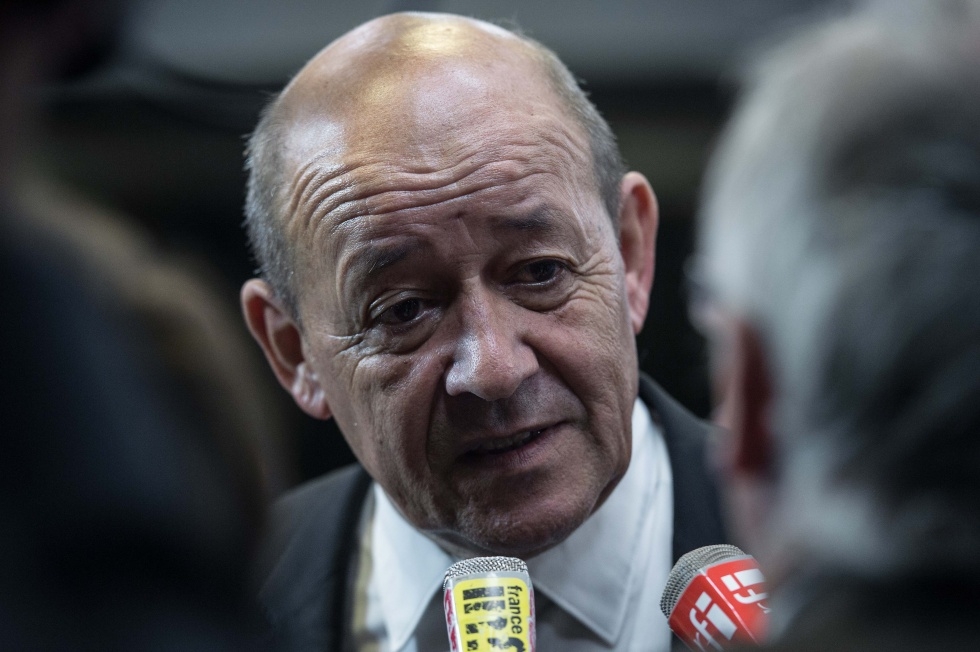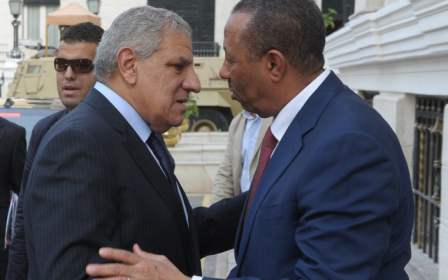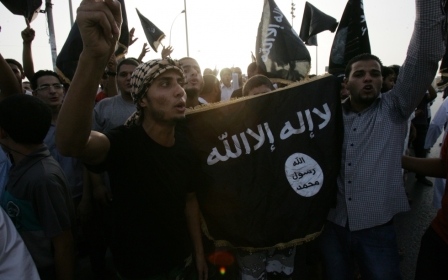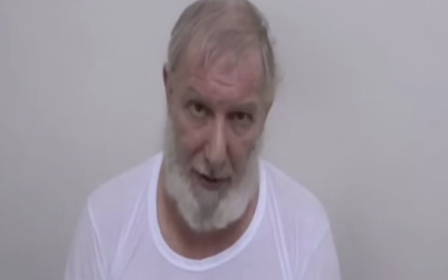France’s Operation Barkane Launches First Attack in Sahel
A militant convoy has been destroyed in the first engagement for the French force - Operation Barkane

French defence minister Jean-Yves Le Drian insists militants transit men and weapons through desert between Algeria, Libya, Niger, Chad and Mali (AFP)
Published date: Vendredi 13 février 2015 - 02:00
|
Last update: 9 années 9 mois ago
French forces in Niger have attacked and destroyed what they say is a militant convoy transporting weapons south from Libya, Paris said on Friday.
Few details of the operation were disclosed, but France said the attack destroyed weapons and personnel sent by militants in Libya through Niger to support their comrades in Mali.
The attack marks the first engagement for a 3,000-strong French force deployed in August, Operation Barkane, aimed at combatting what Paris says are militants who move men and material across the Sahel region of North Africa.
Few details of the attack were given by Paris, with no mention of casualties, or whether the convoy was struck from the ground or air.
A short statement from the office of president Francois Hollande read: “The intervention enabled a large quantity of weapons to be seized and to neutralize a number of those in the convoy,” Reuters reported.
The attack marks the latest step in an assertive stance by Paris in seeking to confront militants it says range across North Africa, and which saw France commit troops to attack Islamist groups in northern Mali in January of last year.
The French operation in Mali last scattered the militant units, and since then Mali has held elections and opened talks between the government and non-Islamist militants.
But violence continues to flare in Mali and across the region, with nine UN peacekeepers killed in an attack earlier this month in neighbouring Niger.
French defence minister Jean-Yves Le Drian insists Islamist militant groups transit men and weapons over vast tracts of desert between Algeria, Libya, Niger, Chad and Mali to aid one another.
Paris says Operation Barkane is intended to combat that. Three thousand troops represents a tiny force to guard tens of thousands of square miles of desert, but with good intelligence, France says it will provide a strike force to hit militant units on the move.
“The concern of France, is the risk of a connection, of a network between all these different terrorist groups that are acting all over the area, from Nigeria to the Middle East,” Le Drian said after an 2 October meeting in Washington with US Defence Secretary Chuck Hagel.
The meeting discussed cooperation between the 3,000 French troops and information available from American pilotless aircraft – drones- deployed in the region. Washington this summer announced the opening of a second drone base in Niger, and uses these planes, equipped with cameras and night vision equipment, for extended reconnaissance flights across the desert.
Their cameras are able to pick up vehicles and tire tracks in the desert, a system of surveillance made easier because of the lack of vegetation or of built-up settlements to provide any kind of cover for vehicles on the move.
Le Drian said earlier this year that militant bases meant the Sahara was a “nest of vipers” and vowed to combat them, with American support.
Hagel said after the same Washington meeting: “France's leadership in confronting extremist threats in the Sahel is particularly important as the United States continues to provide support to French operations in Mali, including airlift, refuelling and intelligence cooperation.”
Paris insists states in the Sahel are facing attacks by inter-connected militant groups, including a January 2013 attack by fighters launched from Libyan territory on Algeria’s In Amenas gas plant, in fighting that left more than 50 dead, including 35 foreign hostages.
French cooperation with the US in North Africa is mirrored by joint air strikes by both states against IS targets in Iraq. “We have to do it both on the military side and, of course, without neglecting any theater of operation,” said Le Drian.
The focus of French concern is Libya, home to vast quantities of weapons left by the overthrow of Muammar Gaddafi in the 2011 revolution, and now embroiled in civil war between Islamists and their allies and pro-government forces.
France’s embassy in Tripoli was struck by a car bomb in April 2013, wounding two guards and a French civilian, in what was seen as a response by militants after its operation earlier that year in Mali.
Paris later moved its embassy to a hotel in the capital and in July joined the US and most other embassies in evacuating Tripoli after Libya Dawn, an alliance of Islamist and Misratan militias, began fighting against militias from Zintan in Tripoli.
The fighting ended in a victory for Libya Dawn, which has broken with Libya’s newly elected parliament which has fled to the eastern town of Tobruk. With Benghazi, Libya’s second city, also the scene of fighting, between Islamist brigade Ansar al Sharia and militias of a former general, Khalifa Hiftar, much of the country is in chaos. For France, this means there is no effective government force to guard the border or stop the militants.
How big and coordinated a threat the militants pose is difficult to assess, as France does not share details of its intelligence. Paris insists it is supplementing over-stretched state forces in North Africa, characterizing its deployment as military assistance against what it insists are well armed well motivated Islamist fighters. Only time will tell how big this threat is, and whether joint action between France and the US is able to combat it.
Middle East Eye propose une couverture et une analyse indépendantes et incomparables du Moyen-Orient, de l’Afrique du Nord et d’autres régions du monde. Pour en savoir plus sur la reprise de ce contenu et les frais qui s’appliquent, veuillez remplir ce formulaire [en anglais]. Pour en savoir plus sur MEE, cliquez ici [en anglais].




